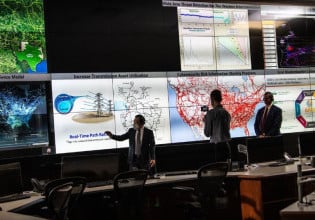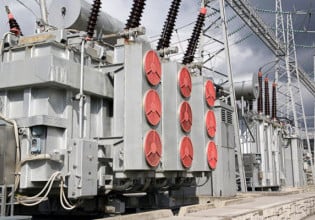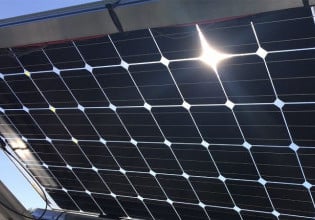EnerDel & ITOCHU Unveil Automotive-to-Smart Grid Integration Project in Japan
EnerDel has joined forces with ITOCHU Corp. to unveil what the companies described as a groundbreaking new project that showcases a real-world integration of the smart grid, electric vehicles and renewable energy technologies. EnerDel is supplying the advanced battery systems at the heart of the project, said to mark the first time that EVs, stationary grid storage, solar power and rapid re-charging infrastructure are combined in a real-world operating environment.
The project – located outside Tokyo in Tsukuba City, Japan, a major center for scientific R&D – involves a partnership between more than a dozen companies from around the globe. It serves as an exhibition of a highly advanced direct current rapid recharge system, as well as a secondary use model for fixed in-vehicle batteries. The project is designed to showcase the valuable afterlife batteries can have in stationary grid applications once they are cycled through their useful vehicular lifespan, where operating parameters are much less taxing. A viable battery aftermarket would significantly lower costs for both automotive and utility buyers.
"The integration of rapid charging, smart grid and electric vehicles is a crucial step in the transition to clean, efficient, low-carbon energy and transportation systems, and something that countries all over the world are moving toward," said Charles Gassenheimer, Chairman and CEO of EnerDel parent company Ener1, Inc. (HEV). "This project also demonstrates how critical a secondary-use strategy is in unlocking economic value that becomes a key driver for the EV battery industry."
"EnerDel’s top quality battery systems provide a robust platform for rapid-recharge," said Murase Hiroaki, Deputy Manager Battery Business Unit of ITOCHU Corp.. "Partnering with industry leaders like EnerDel, Family Mart and Mazda is an important step forward in the widespread adoption of electric vehicles and renewable energy."
In a ceremony to showcase the project, company representatives demonstrated an electric drivetrain involving a set of Mazda vehicles specially converted to adopt EnerDel batteries and drivetrain components from EnerDel automotive partner and customer, THINK.
The compact 5-door Mazda Demio, sold outside of Japan as the Mazda2, is based at a Family Mart convenience store for car-sharing equipped with solar power generating systems, high-speed recharging stations, a billing mechanism using a non-contract IC-imbedded smart card, terminals for remote battery monitoring of charging, discharging, wear data, and a stationary battery array used to move energy to and from the electric grid.
The unique combination of on-site battery storage with rapid re-charging allows for the use of direct current throughout the system, sharply reducing the amount of time needed to charge a vehicle. It also allows drivers to recharge the car without drawing power from the grid, a significant advantage at peak load times. The project uses a 24-kilowatt-hour fixed storage EnerDel battery pack, originally designed for the THINK City electric vehicle, to demonstrate that automotive systems can be used in stationary applications without major modification.






